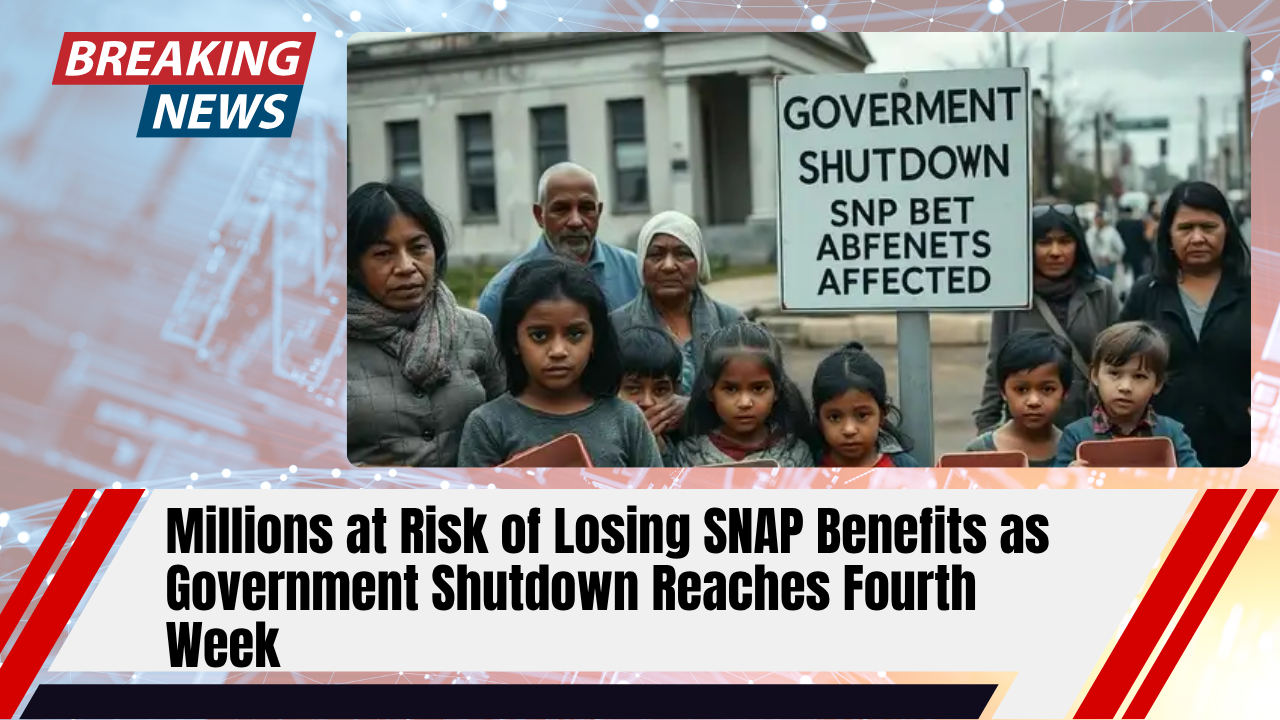WASHINGTON, D.C. — Millions of Americans could soon miss their SNAP food assistance payments if the federal government shutdown continues into November, according to federal and state officials.
The shutdown, now entering its fourth week, has halted new funding for the Supplemental Nutrition Assistance Program (SNAP), which helps more than 40 million low-income Americans buy groceries.
House Speaker Mike Johnson said Monday that roughly $5 billion in contingency funds that once covered SNAP benefits are now “not legally available” under the current funding lapse.
“Pre-existing appropriation for the contingency plan to be used — and Democrats blocked that appropriation when they rejected the clean continuing resolution,” Johnson said. “The way to make this stop immediately — we just need five more Democrats in the Senate to do the right thing.”
States Brace for Impact
Without new federal funding, SNAP payments could stop as early as Nov. 1, leaving millions of families scrambling to afford food.
In Maryland, nearly 700,000 people, including about 270,000 children, rely on SNAP. In Virginia, roughly 850,000 residents use the program.
Virginia Gov. Glenn Youngkin has declared a state of emergency to ensure assistance continues temporarily, tapping into the state’s $10 billion budget surplus to keep benefits flowing.
Meanwhile, Maryland Gov. Wes Moore said the state cannot front SNAP funds without assurance of federal reimbursement.
“The federal government has a responsibility to ensure food security,” Moore said. “Families should not become collateral damage in a political standoff.”
Maryland Attorney General Anthony Brown has also requested clarification from the U.S. Department of Agriculture (USDA) — which oversees SNAP — about whether withholding payments during a shutdown is legal.
Local Concerns Grow
Community organizations across the D.C., Maryland, and Virginia region say they are already seeing an increase in calls from worried families and food banks preparing for a possible funding gap.
Without congressional action, experts warn that grocery stores and local economies dependent on federal food aid could also feel the ripple effects.



